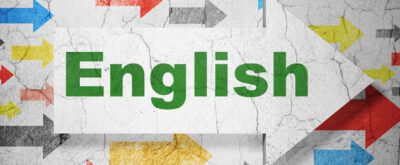Effect of dictionary on learning English
We’re going to look at the effect of dictionary on learning English. The first step in learning any language is to learn its words and vocabulary. How would it be possible for you to speak, read, or write without learning vocabulary? So the first necessity is to learn English words. The first and foremost solution is to refer to a dictionary or encyclopedia.
In this article, we will examine two issues:
1. What is the effect of reading vocabulary and a dictionary in learning?
2. How to use dictionaries and encyclopedias effectively?

The effect of dictionary on English learning
A: Increase vocabulary
One popular belief is that reading a dictionary increases the knowledge of vocabulary. It might technically be true, but the thing is you cannot say you have learnt a word if cannot use it in your speaking or writing. To develop your vocabulary, you have to learn how a word is used in English sentences. It can be fulfilled when you expose yourself to English through listening , reading, writing and speaking but not by reading a dictionary. A standard dictionary, with examples, can help you see the use of vocabulary. When you want to talk, write, and even read about a topic, you need to know the vocabulary in that area. The first solution is to refer to a dictionary.
B: See pattern and allegorical sentences in each word
One of the characteristics of a standard dictionaries is that in addition to the meaning of the word, it brings us allegorical sentences or examples of the set pattern of each word, collocations and phrases. This prepares your mind to better use your mental vocabulary for a topic. In fact, it’s like a ready-made template that you can use.
C: Learn synonyms
Another positive thing about using dictionaries is learning synonyms and antonyms. When you look a word up even in a pocket dictionary, you see that it has at least one synonym or antonym. This is very effective in sticking words in the mind.
How to use a dictionary in learning English
1. Be sure to use an English-to-English dictionary
If you are going to learn English, be sure to go for English-to-English dictionaries. In English-to-Persian dictionaries, you may find a word and its definition sooner, but it has less learning effect.
2. Follow the words and concepts
When you try to grasp the meaning of a word in a dictionary, you may come across some unknown words in the explanations given for that word; here is where you should not leave them unknown. Find those words in the dictionary as well. Keep doing this until you fully understand the concept.
It may tire you out at first, but keeping it up will make you feel content. This method is very effective in increasing vocabulary and their use.
3. Use more patterns for yourself
Dictionaries provide a template and example for you to understand words and phrases. Don’t settle for less than your full potential. Try to write other examples in your vocabulary notebook based on the same template.
With this method, after a while, you will become a English-spoken dictionary. This means that if someone asks you the meaning of a word, instead of giving the definition very quickly, you can explain it in a sentence, exemplifying its use in different ways and situations.
4. See dictionaries on a regular basis, particularly its activator section
If you only refer to dictionaries when needed, that’s necessary, but do not miss the activator section. You want to be fluent in English. Have a specific time to read the activator section of dictionary. It shows you how a native speaker uses a word in different sentences and situations. Continuing to refer to and use a dictionary is very effective in memorizing your vocabulary and expanding it.
The abstract of the article:
In this article, we talked about the effect of a dictionary on English learning and explained how to use a dictionary.


 فارسی
فارسی
